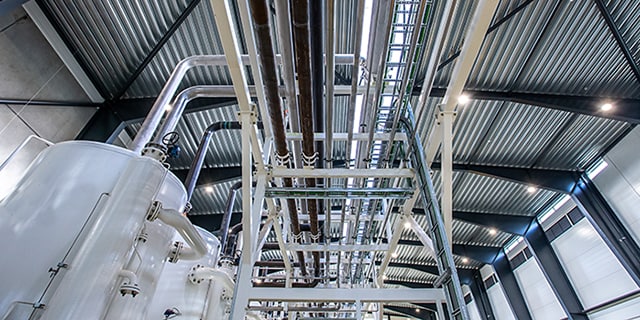Is Hydrogen Fuel Expensive?

Why Hydrogen Is a Cost-Effective Fuel
Chuck Hayes, Global Technical Lead, Swagelok
Cost is one of the most important factors affecting whether a new technology is adopted at scale. It is certainly an important consideration for people evaluating alternative fuel sources. Regardless of end use, whether hydrogen is widely embraced will depend on how cost-effective it is to generate and use.
Many people are wondering, “Is hydrogen expensive? Is it cost-prohibitive for potential everyday drivers or industrial users?” The short answer is, “No, at least not long term.” While hydrogen may be slightly more costly than other fuel sources today, experts predict that those prices will drop dramatically in the coming years.
In our third installment of our series debunking hydrogen myths, we’ll explore why hydrogen is a cost-effective alternative fuel that end users can depend on.
Did You Know?
The U.S. Department of Energy (DOE) Earthshots program is specifically intended to encourage the development of hydrogen fuel in ways that will further reduce its costs. Hydrogen fuel cell buses will be less expensive to operate than battery-powered and ICE buses, according to Deloitte. Projections indicate green hydrogen will be less expensive than natural gas by 2050.
The Price of Hydrogen Is Falling
While it’s true that traditional fuels are currently cheaper, hydrogen cost is expected to fall significantly as production scales up.
There are a few reasons for this. Major oil producers are significantly reducing their production levels that have created unsustainably low prices and are also making decarbonization commitments over the long term. These measures will likely raise gasoline and diesel prices for consumers who drive internal combustion engine (ICE) vehicles.
Meanwhile, the price of green hydrogen continues to fall. Experts suggest that within ten years, hydrogen fuel will be cost-competitive with traditional fuel sources. The costs for renewable energy sources—solar, wind, water—used for green hydrogen production are also continuing to fall, which will further influence hydrogen pricing. In addition, as governments across the globe enact more stringent carbon dioxide emissions standards, it is expected that governments may offer subsidies to incentivize clean energy growth.
Creating the Low-Cost-of-Ownership Hydrogen Infrastructure
A strong hydrogen refueling infrastructure will be required for hydrogen to meet its full potential. Investment is happening—for example, the United States recently announced a $7 billion in funding for seven regional clean hydrogen hubs to accelerate the domestic market for low-cost, clean hydrogen. The industry’s ability to build this infrastructure reliably has the potential to influence hydrogen costs for end users.
The right valves, tube fittings, and other fluid system components can help minimize leaks and maintenance needs for hydrogen refueling stations.

The Bottom Line
Hydrogen is soon expected to be cheaper than most conventional fossil fuels. Governments around the world are increasing their support for hydrogen fuels, and there’s no obvious reason to believe this trend will reverse. Given hydrogen’s potential as a zero-emission fuel source, we expect to see excitement grow around hydrogen energy as it becomes increasingly more affordable.
Want to learn more about the clean energy economy? Swagelok is invested in enabling its growth, continuously working to deliver reliable hydrogen solutions for companies on the leading edge of clean energy development. Explore relevant topics on Swagelok Reference Point to learn more about reliable hydrogen fuel systems and how to make them a reality.
Related Articles

Optimize Your Electrolyzers With Fluid System Support
The hydrogen electrolysis process depends on reliable inflow and outflow fluid systems. Learn how you can control costs, enhance safety, and maximize productivity with the right fluid system support.

What to Look for in Hydrogen Valves
Valves are critical parts of hydrogen fluid systems. Learn what to look for in an ideal hydrogen valve and how it can contribute to safer, more reliable hydrogen transportation.

Supporting the Production and Storage of Green Hydrogen
See how Everfuel is making hydrogen happen with the help of Swagelok products and expertise.



